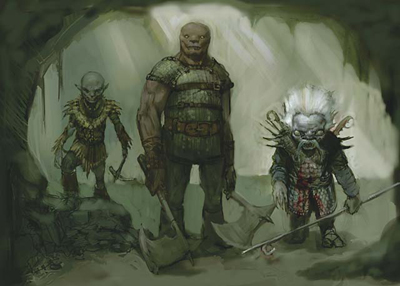D&d 5e Dmg Standard Scores Feat
Find cheap flights in seconds, explore destinations on a map, and sign up for fare alerts on Google Flights. Do you allow feats in your campaigns? When creating a character in Dungeons & Dragons 5th Edition you have the option of taking Feats instead of taking an ability score increase at level 4, 8, 12, 16, 19. There is also an optional rule that allows human characters to take a feat is they are allowed to use the Variant Human Traits (p. 31 of the Player’s Handbook).
D definition, the fourth letter of the English alphabet, a consonant. Find real-time D - Dominion Energy Inc stock quotes, company profile, news and forecasts from CNN Business. Aug 03, 2015 Style Guide for Dungeon Masters I was looking for an official writer’s guide, or style sheet, from Wizards of the Coast for the 5th edition Dungeons and Dragons. Perhaps they have one and I just couldn’t find it. So I took the copies I had from 3.5 and 4.0 and updated them for 5th edition. Search the world's information, including webpages, images, videos and more. Google has many special features to help you find exactly what you're looking for.
In the PHB, the suggested point-buy resulted in scores that seem very low compared to previous editions.
It seems that other game elements are balanced down, like ACs, and with the emphasis on ability checks with the relatively low proficiency bonuses, it might make it more important to have high ability scores? Or should ability scores stay lower like everything else in this edition?
Of course, I like to keep the PCs a little stronger, as the players enjoy it more and I can ramp up the encounter difficulty. Just wondering what people's experiences have been so far.
- 7
- [+] Dice rolls
D'angelo Russell
Report a bugD is a general-purpose programming language with static typing, systems-level access, and C-like syntax. With the D Programming Language, write fast, read fast, and run fast.
Fast code, fast.
Got a brief example illustrating D?
Submit your code to the digitalmars.D forum specifying '[your code here]' in the subject.
Upon approval it will be showcased here on a random schedule.
Support the D language
D is made possible through the hard work and dedication of many volunteers, with the coordination and outreach of the D Language Foundation, a 501(c)(3) non-profit organization. You can help further the development of the D language and help grow our community by supporting the Foundation.
DonateLearn More About The Foundation
Lots of to our sponsors and contributors.
News
Stay updated with the latest posts in the Official D Blog from October 15, 2019: My Vision of D’s Future by Atila Neves.
From October 4, 2019: D Language Foundation Funding: New Platforms, New Bounties by Michael Parker.
Learn
Take the Tour, explore major features in D, browse the quick overview, start with C or C++ background, and ask questions in the Learn forum.
For a deeper dive into D check out books or videos such as Ali Çehreli's free book Programming in D.
Community
Discuss D on the forums, join the IRC channel, read our official Blog, or follow us on Twitter. Browse the wiki, where among other things you can find the high-level vision of the D Language Foundation.
Documentation
Refer to the language specification and the documentation of Phobos, D's standard library. The DMD manual tells you how to use the compiler. Internet explorer mac download free. Read various articles to deepen your understanding.
Contribute
Report any bugs you find to our bug tracker. If you can fix an issue, make a pull request on GitHub. There are many other ways to help, too!

Packages
DUB is the package manager for D. Get started with DUB, and check out the available packages.
Run
Configure linting, formatting or completion for your favorite IDE, editor or use run.dlang.io to play and experiment with D code.
Explore
Learn about pragmatic D, the DStyle, common D idioms and templates, See what's coming upcoming with next version, explore D Improvement Proposals, and don't fear D's garbage collection.
Fast code, fast.
Write Fast
D allows writing large code fragments without redundantly specifying types, like dynamic languages do. On the other hand, static inference deduces types and other code properties, giving the best of both the static and the dynamic worlds.
Automatic memory management makes for safe, simple, and robust code. D also supports scoped resource management (aka the RAII idiom) and scope statements for deterministic transactional code that is easy to write and read.
Built-in linear and associative arrays, slices, and ranges make daily programming simple and pleasant for tasks, both small and large.
The D programming language Modern convenience. Modeling power. Native efficiency.Read Fast
The best paradigm is to not impose something at the expense of others. D offers classic polymorphism, value semantics, functional style, generics, generative programming, contract programming, and more—all harmoniously integrated.
D offers an innovative approach to concurrency, featuring true immutable data, message passing, no sharing by default, and controlled mutable sharing across threads. Read more.
From simple scripts to large projects, D has the breadth to scale with any application's needs: unit testing, information hiding, refined modularity, fast compilation, precise interfaces. Read more.
D-mannose
Run Fast
D compiles naturally to efficient native code.
D is designed such that most 'obvious' code is fast and safe. On occasion a function might need to escape the confines of type safety for ultimate speed and control. For such rare cases D offers native pointers, type casts, access to any C function without any intervening translation, manual memory management, custom allocators and even inline assembly code.
How Many Feats 5e D&d
The @safe, @trusted, and @system function attributes allow the programmer to best decide the safety-efficiency tradeoffs of an application, and have the compiler check for consistency. Read more.